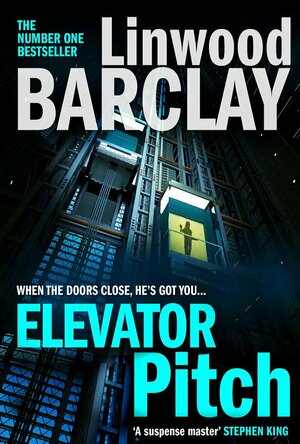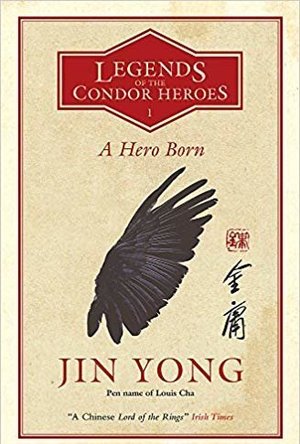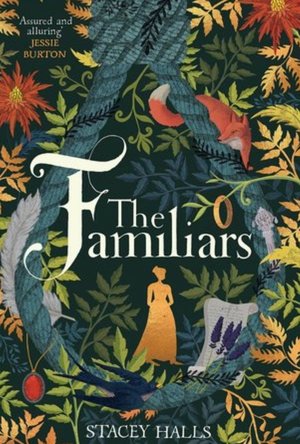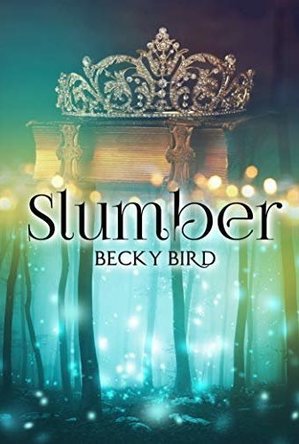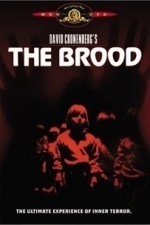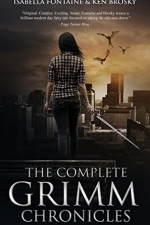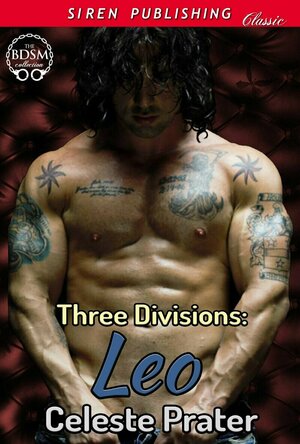Search
Search results
Mayhawke (97 KP) rated Elevator Pitch in Books
Jun 28, 2019
A nice return to U.S. crime fiction
Crime fiction is my thing. It's what I read most of, most of the time.
Over a decade ago I stopped reading crime fiction from the U.S. because I found what seemed to be a an unpleasant dwelling on the suffering of victims; a voyeurism which I found uncomfortable, and highly unpleasant. It was as though American crime writers were incapable of exploring the darkness of humanity, or giving clarity to events without relishing the pain and terror that must have been experienced by those on the receiving end of them.
Of course this was never true of all U.S. crime fiction, but I couldn't be asked to keep searching for the other kind. It was easier to just stay away from it all.
So, this is the first American crime novel I have read in nearly fifteen years.
What a joy it was. Barclay sets out a gripping thriller, an excellently plotted story which will educate you just a bit more than is comfortable on the ease of hacking lift controls in the technical age, whilst carefully leading you up and down the garden path a couple of times. The reading style is comfortable, the exposition is well paced. Eventually you arrive at a satisfying, and prompt conclusion. Barclay avoids the temptation to draw out the end like a cheerleader pulling gum, something that only works in Golden Era crime, and I always feel is out of place in otherwise fast-paced books of a more recent age.
Against this the characters have a slightly superficial feel, as though they have only been given the complexity they need for the book, and the denouement was not a huge surprise, though it was batted back and forth between two potential subjects nicely. But these really are minor complaints I really enjoyed this book and I will definitely be going back and reading some more of Linwood's books on the basis of this one.
Over a decade ago I stopped reading crime fiction from the U.S. because I found what seemed to be a an unpleasant dwelling on the suffering of victims; a voyeurism which I found uncomfortable, and highly unpleasant. It was as though American crime writers were incapable of exploring the darkness of humanity, or giving clarity to events without relishing the pain and terror that must have been experienced by those on the receiving end of them.
Of course this was never true of all U.S. crime fiction, but I couldn't be asked to keep searching for the other kind. It was easier to just stay away from it all.
So, this is the first American crime novel I have read in nearly fifteen years.
What a joy it was. Barclay sets out a gripping thriller, an excellently plotted story which will educate you just a bit more than is comfortable on the ease of hacking lift controls in the technical age, whilst carefully leading you up and down the garden path a couple of times. The reading style is comfortable, the exposition is well paced. Eventually you arrive at a satisfying, and prompt conclusion. Barclay avoids the temptation to draw out the end like a cheerleader pulling gum, something that only works in Golden Era crime, and I always feel is out of place in otherwise fast-paced books of a more recent age.
Against this the characters have a slightly superficial feel, as though they have only been given the complexity they need for the book, and the denouement was not a huge surprise, though it was batted back and forth between two potential subjects nicely. But these really are minor complaints I really enjoyed this book and I will definitely be going back and reading some more of Linwood's books on the basis of this one.
Sensitivemuse (246 KP) rated A Hero Born in Books
Sep 25, 2019
Great plot but translation isn't so good
Despite what you read on the covers (e.g. “It’s like Lord of the Rings”) ignore all of that. It’s nothing like it. There is no epic adventure to fight evil (at least not yet - this is the first book in the series). So before you get all disappointed in what the outside quotes say, completely disregard them.
Translation will always be an issue with these kinds of books. It’s hard to keep it true and coherent. Sometimes you get a good one that is completely comprehensible and makes the reading a journey well worth it. Then you get one like A Hero Born and it’s not the greatest translation. The writing style is dry and hard to get into. Sometimes it gets too descriptive, but other times it’s not descriptive enough. It can be a little long winded at times and it drags - I’m not too sure if that’s because of the run on writing style or the plot itself. Either way by the last third of the book it was getting to be tiresome.
Speaking of the plot, it was good! There’s plenty of action, a bit of intrigue here and there. If you don’t mind something akin to Chinese historical fiction movies with classic martial arts fighting then perhaps this is for you. There are small elements of political intrigue which keeps the story interesting, however keep in mind there are a lot of characters to keep track of, but luckily there is a cast of characters in the beginning of the novel so that should not be a problem. This isn’t a book to put down and turn back to later, this needs to be consistently read you will easily lose your place.
There’s also several plot arcs that happen throughout the novel so it’s best to keep track of them carefully. They are all intertwined at some point. It’s a great plot and if it wasn’t for the horrible writing/translation.
I don’t know if I could recommend this one to anyone. I would under normal circumstances but the writing just do the plot justice. It’s too bad, it would have been such a great series.
Translation will always be an issue with these kinds of books. It’s hard to keep it true and coherent. Sometimes you get a good one that is completely comprehensible and makes the reading a journey well worth it. Then you get one like A Hero Born and it’s not the greatest translation. The writing style is dry and hard to get into. Sometimes it gets too descriptive, but other times it’s not descriptive enough. It can be a little long winded at times and it drags - I’m not too sure if that’s because of the run on writing style or the plot itself. Either way by the last third of the book it was getting to be tiresome.
Speaking of the plot, it was good! There’s plenty of action, a bit of intrigue here and there. If you don’t mind something akin to Chinese historical fiction movies with classic martial arts fighting then perhaps this is for you. There are small elements of political intrigue which keeps the story interesting, however keep in mind there are a lot of characters to keep track of, but luckily there is a cast of characters in the beginning of the novel so that should not be a problem. This isn’t a book to put down and turn back to later, this needs to be consistently read you will easily lose your place.
There’s also several plot arcs that happen throughout the novel so it’s best to keep track of them carefully. They are all intertwined at some point. It’s a great plot and if it wasn’t for the horrible writing/translation.
I don’t know if I could recommend this one to anyone. I would under normal circumstances but the writing just do the plot justice. It’s too bad, it would have been such a great series.
ClareR (6062 KP) rated The Familiars in Books
Jul 14, 2019 (Updated Jul 14, 2019)
The fact that this book is based on true events makes it all the more harrowing, in my opinion. When people ask “What era would you like to visit or live in?”, I pretty much always answer “I’m fine just where I am. I rather like the antibiotics, general freedom and option not to be hung and/ or burned as a witch, thanks very much”. I do however, very much like reading about the past, and this gives a fascinating insight to the Pendle Hill Witch Trials.
Fleetwood is seventeen years old and pregnant for the fourth time. Her three previous pregnancies have all resulted in stillbirth or miscarriage, and she has found letters from a doctor to her husband, saying that she will not survive another. She meets Alice Grey, who is a midwife, by chance. Alice promises to help her give birth to a living child, and assures her that she will survive the birth.
The fact that Alice is a midwife leaves her vulnerable to accusations of witchcraft, and accused she is. Fleetwood is adamant that she will save her as she is her friend and the only person who will be able to save hers and her baby’s lives. No one takes Fleetwood seriously though; when they do take her seriously, they expect her to go home and knuckle down to the more womanly pursuits of child bearing and being a wife.
Fleetwoods frustration is described so well - no one will listen, and no one will help. It’s such a tense atmosphere - Fleetwood just wants to help,her friend, and there are so many obstacles in the way. Even her social standing is no deterrent if someone were to accuse her of witchcraft if she becomes too troublesome (there’s the example of Margaret Pearson in the story, whose maid accused her of having a toad as a familiar, and spent time in the stocks before being imprisoned)
I really enjoyed this book, and I’ll be waiting for whatever the author writes next (I’m on the mailing list!).
Many thanks to Readers First for my copy of this book.
Fleetwood is seventeen years old and pregnant for the fourth time. Her three previous pregnancies have all resulted in stillbirth or miscarriage, and she has found letters from a doctor to her husband, saying that she will not survive another. She meets Alice Grey, who is a midwife, by chance. Alice promises to help her give birth to a living child, and assures her that she will survive the birth.
The fact that Alice is a midwife leaves her vulnerable to accusations of witchcraft, and accused she is. Fleetwood is adamant that she will save her as she is her friend and the only person who will be able to save hers and her baby’s lives. No one takes Fleetwood seriously though; when they do take her seriously, they expect her to go home and knuckle down to the more womanly pursuits of child bearing and being a wife.
Fleetwoods frustration is described so well - no one will listen, and no one will help. It’s such a tense atmosphere - Fleetwood just wants to help,her friend, and there are so many obstacles in the way. Even her social standing is no deterrent if someone were to accuse her of witchcraft if she becomes too troublesome (there’s the example of Margaret Pearson in the story, whose maid accused her of having a toad as a familiar, and spent time in the stocks before being imprisoned)
I really enjoyed this book, and I’ll be waiting for whatever the author writes next (I’m on the mailing list!).
Many thanks to Readers First for my copy of this book.
Lottie disney bookworm (1056 KP) rated Slumber in Books
Sep 9, 2019
Thank you to NetGalley and Becky Bird for providing an e-copy of Slumber in exchange for an honest opinion.
Everyone knows that the market for fairy tale retellings is hot right now and, as such, is becoming saturated. However, Becky Bird comes at the story of Sleeping Beauty from a completely different angle: what if “true love’s kiss” which breaks the spell isn’t that between the Prince and Princess?
Slumber was a slow burner for me personally. Initially I agreed with previous reviews that the novel would be considered middle-grade rather than YA but my opinion did change about half way through the book. In my opinion, this was when the author ‘settled in’ to the novel and truly developed the characters into ones the reader could relate to and find themselves rooting for.
This was also the point where it became clear Becky Bird was challenging a number of stereotypes through her characters: the Cardinal is a man of God but this does not necessarily make him good; Lucy is an orphan but this does not make her weak; Jack is a boy but this does not make him brave and, finally, Thomas is a Prince but this does not make him charming! This humanised the characters for me and I found myself growing to really like them.
There are also a number of tongue-in-cheek references to fairy tales which I really appreciated. Phrases such as “bibbidi-bobbidi-boo” and Jack running for the trees every chance he got added an undercurrent of humour throughout the novel.
Unfortunately, there were moments where I got frustrated by the novel skipping between locations and characters- sometimes mid-event. Separating these by chapters or even page breaks would have made this an easier read. The start of the book especially also seemed to be a tad “over written” with references to a literal river of tears and a croissant described as a “creamy delight”.
Overall Slumber was a quick and easy read with a really great concept and endearing characters. It possibly could have benefitted from some suspense as all the Cardinal’s motives were revealed right at the start of the book but nevertheless it was an enjoyable read.
Everyone knows that the market for fairy tale retellings is hot right now and, as such, is becoming saturated. However, Becky Bird comes at the story of Sleeping Beauty from a completely different angle: what if “true love’s kiss” which breaks the spell isn’t that between the Prince and Princess?
Slumber was a slow burner for me personally. Initially I agreed with previous reviews that the novel would be considered middle-grade rather than YA but my opinion did change about half way through the book. In my opinion, this was when the author ‘settled in’ to the novel and truly developed the characters into ones the reader could relate to and find themselves rooting for.
This was also the point where it became clear Becky Bird was challenging a number of stereotypes through her characters: the Cardinal is a man of God but this does not necessarily make him good; Lucy is an orphan but this does not make her weak; Jack is a boy but this does not make him brave and, finally, Thomas is a Prince but this does not make him charming! This humanised the characters for me and I found myself growing to really like them.
There are also a number of tongue-in-cheek references to fairy tales which I really appreciated. Phrases such as “bibbidi-bobbidi-boo” and Jack running for the trees every chance he got added an undercurrent of humour throughout the novel.
Unfortunately, there were moments where I got frustrated by the novel skipping between locations and characters- sometimes mid-event. Separating these by chapters or even page breaks would have made this an easier read. The start of the book especially also seemed to be a tad “over written” with references to a literal river of tears and a croissant described as a “creamy delight”.
Overall Slumber was a quick and easy read with a really great concept and endearing characters. It possibly could have benefitted from some suspense as all the Cardinal’s motives were revealed right at the start of the book but nevertheless it was an enjoyable read.
Andy K (10823 KP) rated The Brood (1979) in Movies
Sep 22, 2019
An R rated version of Inside Out?
Frank Carveth is just a father with some problems. His wife is currently enrolled in an intense, secluded, mysterious form of psychotherapy being conducted by an unusual doctor. His eccentric mother-in-law, has just been murdered through unusual circumstances and his young daughter is showing signs of physical abuse at the hands of his institutionalized wife that he must now investigate.
After the murder, his father-in-law also arrives, the situation worsens as he attempts to visit his daughter while in therapy without success. Still grief stricken, he wants to confront the doctor or at least understand what is happening.
Here is where the story becomes very unusual. The brutality being dispatched to various individuals is being administered by disfigured "dwarves" or misshapen children which makes no sense to Frank or the police which asks more questions.
After learning additional details, Frank returns to his wife's benefactor for a final confrontation with her and the doctor to ensure the release of his kidnapped daughter.
Cronenberg's early body horror films still stand as some of the most provocative of the gene and this film is certainly no exception. The deformed assailants provide immediate unique intrigue in the film representing something you have never seen previously and it only gets worse.
The total brutality they complete upon their victims is worsened by the fact some of it is even performed in front of children who would obviously be scarred for years to come.
The final reveal of "The Brood" is so intense, bizarre and graphic it will still turn off, repulse or offend almost anyone who watches it. Only true fans of the macabre, strange and totally extreme will find this palpable.
The great Oliver Reed is especially intense in his performance as the unconventional doctor performing his ritualistic treatments which include offbeat role plays where he has conversations with his patents pretending to be other people.
I can only imagine the reaction this film had upon its release in 1979.
After the murder, his father-in-law also arrives, the situation worsens as he attempts to visit his daughter while in therapy without success. Still grief stricken, he wants to confront the doctor or at least understand what is happening.
Here is where the story becomes very unusual. The brutality being dispatched to various individuals is being administered by disfigured "dwarves" or misshapen children which makes no sense to Frank or the police which asks more questions.
After learning additional details, Frank returns to his wife's benefactor for a final confrontation with her and the doctor to ensure the release of his kidnapped daughter.
Cronenberg's early body horror films still stand as some of the most provocative of the gene and this film is certainly no exception. The deformed assailants provide immediate unique intrigue in the film representing something you have never seen previously and it only gets worse.
The total brutality they complete upon their victims is worsened by the fact some of it is even performed in front of children who would obviously be scarred for years to come.
The final reveal of "The Brood" is so intense, bizarre and graphic it will still turn off, repulse or offend almost anyone who watches it. Only true fans of the macabre, strange and totally extreme will find this palpable.
The great Oliver Reed is especially intense in his performance as the unconventional doctor performing his ritualistic treatments which include offbeat role plays where he has conversations with his patents pretending to be other people.
I can only imagine the reaction this film had upon its release in 1979.

Virtual Villagers 2
Games and Entertainment
App
Virtual Villagers: The Lost Children is the second chapter in the award-winning Virtual Villagers...
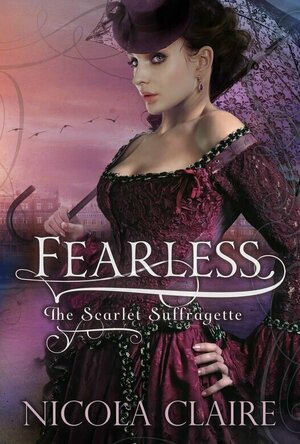
Fearless (Scarlet Suffragette #1)
Book
Nicola Claire's captivating new Gothic romance series introduces a dark and sinister early settler...
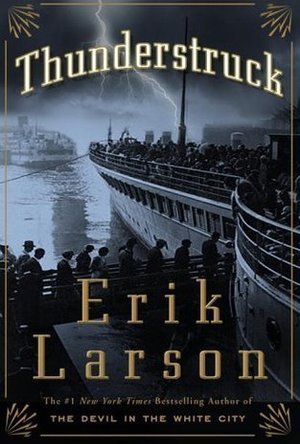
Thunderstruck
Book
The interwoven stories of two men whose lives intersect during one of the greatest criminal chases...
Merissa (13749 KP) rated The Complete Grimm Chronicles (The Grimm Chronicles Box Set) in Books
Apr 12, 2023
I honestly don't know where to start with this book as there are so many good points. I guess a good place to start with what you actually get with this book. This book contains all 12 episodes of the series, as well as the bonus "Lost diaries" of previous heroes and all of the collected Grimm's Fairy Tales so it makes for a very long and satisfying read.
The best way I can describe this set of books is to tell you to imagine Buffy the Vampire Slayer but instead of the Scoobies and her Watcher, imagine a great big, talking, sometimes visible, white Rabbit called Briar to his friends, otherwise known as Br'er Rabbit.
The wit is fast and sharp and on pretty much every page. There is also exhaustion, pain, temptation, and even time for the usual teenage angst. There are no plot holes and the story continues with a smooth flow, making your reading of it completely and thoroughly enjoyable. Be prepared though, if you're anything like me, you will cry! And not just once, either. Characters that you don't like to start with insidiously get under your skin until you do like them and then, of course, you worry about their well-being. (Yes, I know it's a book but it's written that well that you do care!!)
These fairy tales stay true to the originals by the Brothers Grimm, they have not been Disney-fied in any way. You could even say that they are 'grim' as they involve people being eaten, violence, and self-mutilation. These are all things that actually happened in these stories before they were 'softened' for today's children.
If you want a change from Disney, if you like a butt-kicking, fast-witted but altogether relatable Hero, if you want the warmth that the friendship of the Hero's helper or if you just want to read about fairy tales, then I can definitely recommend this set of Chronicles. Seriously, I can't recommend it highly enough. Absolutely brilliant.
* A copy of this book was provided to me with no requirements for a review. I voluntarily read this book; the comments here are my honest opinion. *
Merissa
Archaeolibrarian - I Dig Good Books!
Jun 08, 2015
The best way I can describe this set of books is to tell you to imagine Buffy the Vampire Slayer but instead of the Scoobies and her Watcher, imagine a great big, talking, sometimes visible, white Rabbit called Briar to his friends, otherwise known as Br'er Rabbit.
The wit is fast and sharp and on pretty much every page. There is also exhaustion, pain, temptation, and even time for the usual teenage angst. There are no plot holes and the story continues with a smooth flow, making your reading of it completely and thoroughly enjoyable. Be prepared though, if you're anything like me, you will cry! And not just once, either. Characters that you don't like to start with insidiously get under your skin until you do like them and then, of course, you worry about their well-being. (Yes, I know it's a book but it's written that well that you do care!!)
These fairy tales stay true to the originals by the Brothers Grimm, they have not been Disney-fied in any way. You could even say that they are 'grim' as they involve people being eaten, violence, and self-mutilation. These are all things that actually happened in these stories before they were 'softened' for today's children.
If you want a change from Disney, if you like a butt-kicking, fast-witted but altogether relatable Hero, if you want the warmth that the friendship of the Hero's helper or if you just want to read about fairy tales, then I can definitely recommend this set of Chronicles. Seriously, I can't recommend it highly enough. Absolutely brilliant.
* A copy of this book was provided to me with no requirements for a review. I voluntarily read this book; the comments here are my honest opinion. *
Merissa
Archaeolibrarian - I Dig Good Books!
Jun 08, 2015
Merissa (13749 KP) rated Leo (Three Divisions #1) in Books
Apr 25, 2023
Having been a mahoosive fan of Celeste Prater's Fueled by Lust series, I had a few trepidations about reading this one. For starters, the BDSM scene isn't really my thing, and the few books I have read involving it didn't do anything for me at all. BUT!!! being as how I loved her Sci-Fi, I thought I would give it a go... and I'm glad I did!
Whether or not it rings true doesn't matter to me. What matters is that I found it completely believable within the constraints of the story. The definition of 'Three Divisions' made so much sense, and it made a nice change to have it spelt out in a way that was understandable without being condescending. It actually gave me the warm fuzzies to think that there is someone out there who would be able to take control but also put someone else's needs above their own. I absolutely loved how Leo took care of Jillian, in all ways! The humour was witty and well-timed. I really enjoyed watching Jillian grow, both in the playroom and out. Her put down of Brent was fantastic and I was giving her a high-five at the time!
The suspense side of it was exceedingly well-written, with surprises coming left, right and centre. You knew something was up with the amount of 'air time' that Jillian's client got, but the actual outcome, I didn't see coming. Jillian's handling of said event, and the aftermath, were superb - cool, calm and collected.
Hopefully, without giving anything away, I loved the wrap-up to this book. Everything was as it should be, and I am very much looking forward to the next book in this series. For not liking BDSM books, to giving this one a 5-star and feeling the fuzzies, I can highly recommend it to anyone considering reading about BDSM, or who just wants a steamy, sexy, suspenseful, romantic read. LOVED IT!
* A copy of this book was provided to me with no requirements for a review. I voluntarily read this book, and the comments here are my honest opinion. *
Merissa
Archaeolibrarian - I Dig Good Books!
Nov 22, 2015
Whether or not it rings true doesn't matter to me. What matters is that I found it completely believable within the constraints of the story. The definition of 'Three Divisions' made so much sense, and it made a nice change to have it spelt out in a way that was understandable without being condescending. It actually gave me the warm fuzzies to think that there is someone out there who would be able to take control but also put someone else's needs above their own. I absolutely loved how Leo took care of Jillian, in all ways! The humour was witty and well-timed. I really enjoyed watching Jillian grow, both in the playroom and out. Her put down of Brent was fantastic and I was giving her a high-five at the time!
The suspense side of it was exceedingly well-written, with surprises coming left, right and centre. You knew something was up with the amount of 'air time' that Jillian's client got, but the actual outcome, I didn't see coming. Jillian's handling of said event, and the aftermath, were superb - cool, calm and collected.
Hopefully, without giving anything away, I loved the wrap-up to this book. Everything was as it should be, and I am very much looking forward to the next book in this series. For not liking BDSM books, to giving this one a 5-star and feeling the fuzzies, I can highly recommend it to anyone considering reading about BDSM, or who just wants a steamy, sexy, suspenseful, romantic read. LOVED IT!
* A copy of this book was provided to me with no requirements for a review. I voluntarily read this book, and the comments here are my honest opinion. *
Merissa
Archaeolibrarian - I Dig Good Books!
Nov 22, 2015
